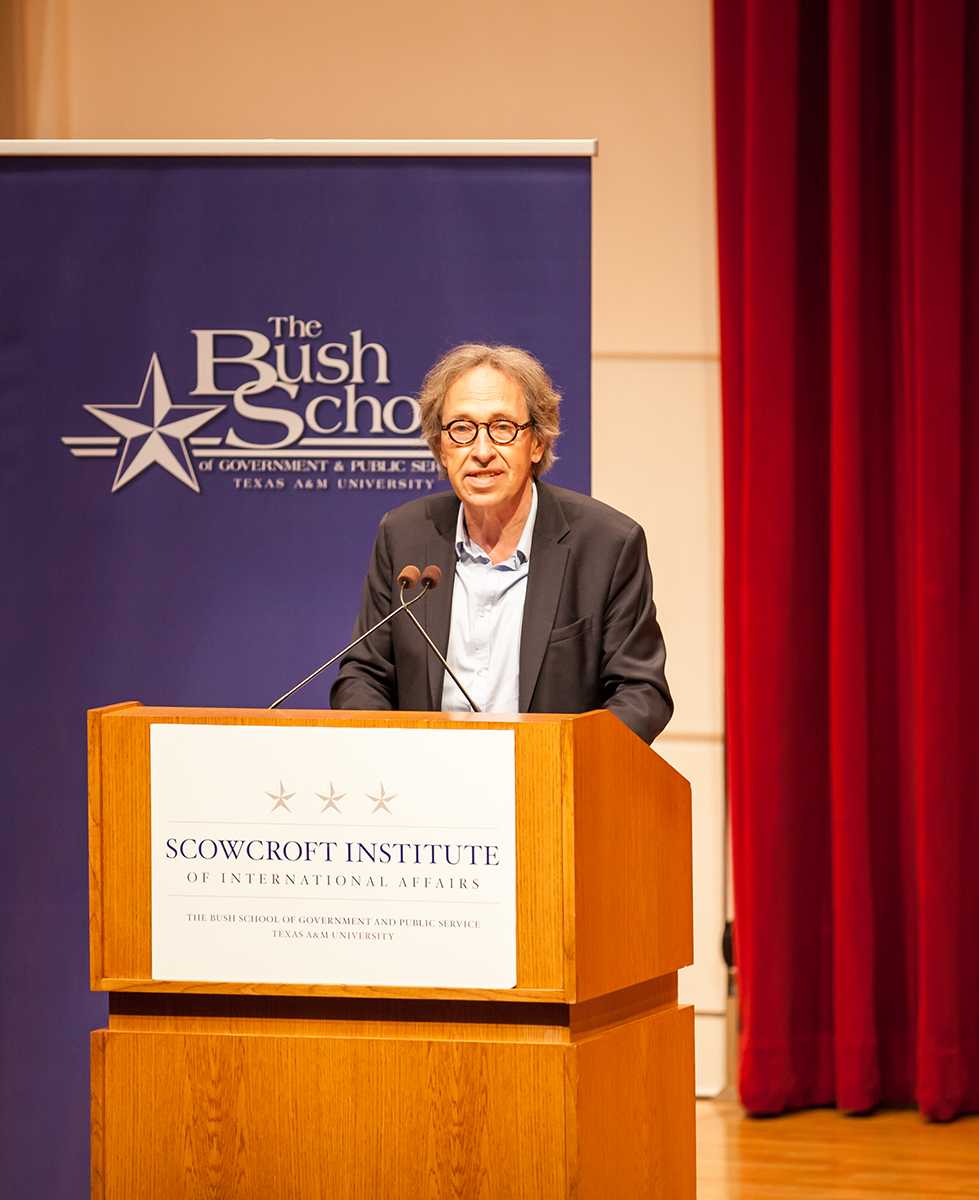Focusing on Russia and Russian President Vladimir Putin as major concerns for the United States, French writer and philosopher Pascal Bruckner addressed Putin’s actions in Crimea and how the United States should respond.
The Wednesday evening lecture, titled “Civil Society, Public Opinion and the Russian Invasion of Ukraine,” was hosted by the Scowcroft Institute of International Affairs.
Over the course of the past year Ukraine has been an unstable region, as pro-Russian rebels fight against the Ukrainian government troops. Attempts at cease-fires or negotiations are often short-lived, and as the fight continues concern has grown over the possibility of Russian military intervention.
Bruckner said Putin holds ambitions to gain more than Crimea, which Russia annexed last year.
“Putin is neither Stalin nor Hitler, but some sort of a national Bolshevik synthetic product,” Buckner said. “With an extra dose of narcissism and exhibitionism on top of it. Bent on dissimulation generally followed but brutal showdowns and insults against his opponents.”
Bruckner said Putin will continue to test Europe and America to see how far he can push before they send military intervention.
“Are Americans brave enough to retaliate, or have they lost any kind of courage, or are they just weasels? I scratch you, if you don’t react I scratch some more, and then we end up attacking you,” Bruckner said.
Bruckner said it is important to demonstrate that Russian belligerence is intolerable and it is crucial to provide economic and military support to eastern European countries to strengthen them against Russian aggression.
“It is imperative to increase economic sanctions against Moscow, to supply Ukraine with weapons, to better balance the forces at play, to strengthen the eastern border of Europe, and to threaten Moscow with the harshest retaliation available in case Poland, Baltic States or Moravia were attacked,” Bruckner said.
The protection of Europe depends upon American support, Bruckner said. If an invasion took place now, Europe would not be able to defend itself.
“We don’t have enough soldiers, we don’t have weapons, we don’t have helicopters, so the burden is left on Americans soldiers,” Bruckner said. “So as students, I think you’re concerned with it.”
Joseph Shepherd, international affairs graduate student, said America has many reasons to be concerned about Russian action.
“Apart from the military issue of whether we are there in that capacity or not, we are already from an aid perspective sending significant amounts of money over there,” Shepherd said. “We’ve got a lot of linkages, economic, diplomatic and just ideological ties with governments over there. Political events have repercussions that reach to every American at home.”
Jordan Sloan, biochemistry sophomore, said having someone from Europe speak on the issue gave him a different perspective on the Crimean crisis.
“I really enjoyed his perspective, it was nice getting that French nationalist, he probably has that continental perspective,” Sloan said. “I wish he would have elaborated more on why we aren’t seeing a strong European response.”
Americans must take foreign threats seriously, Bruckner said.
“That [Russians] want to break us, colonize us, enslave us, convert us, we must do them the justice of taking them to their word,” Bruckner said. “Do not let us fall to the same error committed by the great powers of the interwar period, which did not take ‘Mein Kampf’ seriously and merely considered it the folly of a failed painter.”










